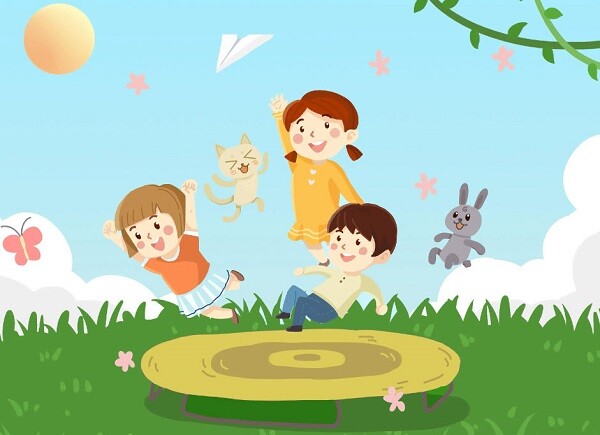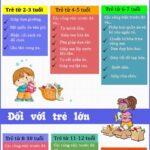Once children have formed habits and developed their personalities, parents should learn to let go in a suitable manner. At this stage, children have a strong sense of independence and clear thinking and understanding.
A psychology expert suggests that the greatest success for parents is to let go of three things in a strict but appropriate way, fostering their children’s independence.

Allow children to make their own choices and decisions
At certain crucial junctures, pertaining to education, career choices, marriage, and other significant decisions, parents should provide their children with relevant information, allowing them to ponder and make sensible choices.
For instance, when selecting subjects in high school, choosing a university or a field of study, or even finding a life partner, children and parents may not always see eye to eye. Open discussions and exchanges of opinions become vitally important in such scenarios.

Allow children to make their own choices and decisions.
By enabling children to decide, we foster their self-confidence and a sense of accountability for their actions. As they mature and confront life’s challenges, they will not blame their parents but instead take responsibility for their own actions.
This approach encourages maturity, positive thinking, learning from mistakes, and growth through experiences.
Additionally, parents should emphasize that no decision is perfect, and every choice has its pros and cons. Discussing the risks and benefits of each option together will help children comprehend the decision-making process and better prepare them for future challenges.

Give children freedom during play and leisure time
After a period of study, children need to unwind and relax both mentally and physically. A balance between work and rest will enhance their enthusiasm for learning. Relaxation helps children recharge, stimulates creativity, and enhances cognitive abilities.
When children are at ease, they tend to learn and absorb knowledge more naturally, which is crucial during their formative years. They can find joy and relaxation in simple games, from ball games to painting or exploring nature. These activities not only reduce stress but also promote the development of essential social skills.

Give children freedom during play and leisure time.
Parents don’t always need to be by their children’s side during playtime. Let them explore and enjoy these moments freely, as long as they stay within safe boundaries and appropriate supervision.
Providing children with this freedom fosters their independence and offers opportunities to learn from their experiences. When playing alone or with peers, they can problem-solve, learn to cooperate, and build social relationships organically.

Don’t fret over minor details of daily life
Parents should refrain from interfering too much in trivial matters, such as what their children wear or eat. Every child has unique preferences. Sometimes, they may not like certain foods, and in such cases, parents should not force them to eat.
Children also have their own fashion sense. They may want to wear the same outfit for several days in a row. However, school uniforms can help reduce unnecessary choices. During weekends, when free from school dress codes, children can choose their attire, expressing their personalities and developing their aesthetic tastes.

Don’t fret over minor details of daily life.
These minor details of daily life will not impact the bigger picture if parents constantly nag about them. Instead, if parents continually intervene and criticize, children may become irritable and bored.
Child-rearing should focus on core values, such as cultivating good study habits, shaping positive characters, and instilling an understanding of truth, goodness, and beauty. Once children can think independently, parents should allow them to make decisions on less critical matters.
This approach nurtures self-confidence, encourages independence, and fosters a sense of responsibility for their choices.
The Storyteller: A Mother’s Belated Realization of Her Mistakes with Her Bipolar Daughter
“Parental influence is one of the most significant factors in a child’s development. When parents frequently engage in negative talk and criticism of others, it can have a profound impact on their child’s emerging personality and psychological well-being. It shapes how they view themselves and others, potentially leading to a distorted sense of self and unhealthy relationships.”







































